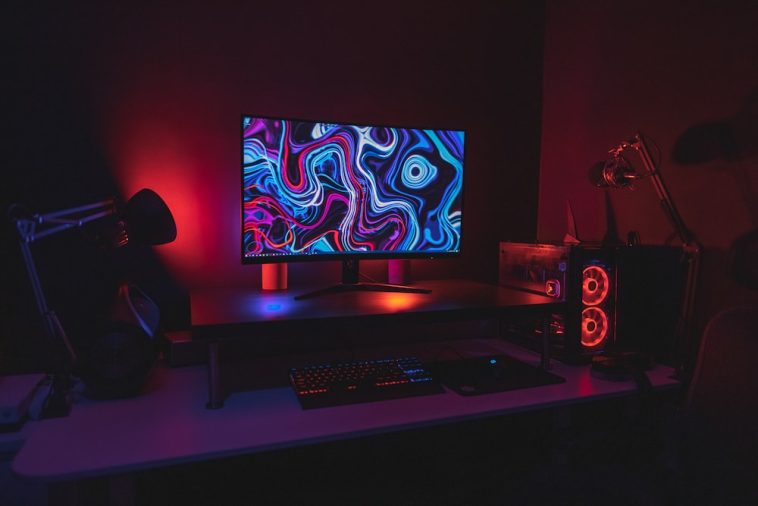Introduction.
The gaming industry is massive and growing fast, with opportunities that range from game design and programming to marketing, community management, and beyond.
It’s an exciting field where creativity meets technology, and for anyone passionate about gaming, it’s a dream career.
But breaking into this industry can feel overwhelming—there are so many roles, skills, and paths to take. Let me walk you through how to get started, what to expect, and how to make yourself stand out.
Why Consider a Career in Gaming?
Video games have become a huge part of entertainment, generating over $180 billion globally in 2022, making it bigger than the film and music industries combined.
With that growth comes demand for talented people to bring games to life, manage communities, and market products to millions of players. It’s not just about playing games—it’s about shaping the experiences others enjoy.
Working in gaming can also be incredibly rewarding. You’ll collaborate with creative, passionate people, constantly learn new things, and contribute to projects that reach a global audience.
Whether you want to code, draw, write, or strategize, there’s likely a place for you in this world.
Different Roles in the Gaming Industry
The first step is figuring out what role suits your skills and interests. Here’s a breakdown of some common areas in the industry:
1. Game Development
- Programming: Write the code that makes games run. You’ll need languages like C++, C#, or Python.
- Design: Focus on the mechanics, levels, and storylines. Tools like Unity and Unreal Engine are widely used.
- Art & Animation: Create characters, environments, and visual effects. This includes 3D modelling and digital art.
2. Quality Assurance (QA)
Test games for bugs and ensure they work smoothly. It’s a great entry-level job to learn the ropes.
3. Game Production
Oversee projects, manage teams, and keep development on track.
4. Audio Design
Create sound effects, voiceovers, and music for games. This requires a mix of technical and creative skills.
5. Marketing and Community Management
Build excitement for games, interact with players, and create strong fan communities.
6. Esports and Content Creation
Careers in hosting, shout casting, or managing esports teams, as well as streaming or video production, are booming.
How Do I Build the Right Skills?
No matter your area of interest, the gaming industry demands a mix of technical expertise, creativity, and teamwork. Here’s how to build the skills you’ll need:
1. Learn the Tools of the Trade
- Game Engines: Unity and Unreal Engine are industry standards. They’re free to download and great for beginners.
- Programming Languages: C++, Python, and C# are common for developers.
- Art Software: Tools like Photoshop, Blender, and Maya are essential for artists.
2. Work on Communication
- You’ll often work in teams, so being able to clearly explain your ideas and listen to others is critical.
3. Stay Updated
- Gaming evolves fast. Follow industry news and trends through websites like Gamasutra, IGN, or Game Developer.
Education and Training
While a degree isn’t always required, it can help open doors. Courses in computer science, game design, digital art, or business can all be relevant.
There are also specialized game design schools like DigiPen and online platforms like Coursera, Udemy, and LinkedIn Learning offering focused courses.
Internships are another great way to gain experience and make connections. Many big companies like EA, Ubisoft, and Riot Games offer programs for students.
Building a Portfolio
A strong portfolio is crucial in the gaming industry. This is how you prove your skills to potential employers. Here’s what to include:
- For Developers: Share projects with clean, functional code. GitHub is a great platform for this.
- For Designers and Artists: Include sketches, models, or animations that showcase your range. Use platforms like ArtStation.
- For Writers: Show examples of game scripts, storyboards, or dialogue.
Start small—build a simple game or mod to demonstrate your abilities. Employers value effort and originality more than flashy details.
Networking: Connecting with the Right People
The gaming industry is surprisingly tight-knit. Networking can help you find opportunities and mentors. Here’s how to do it:
- Attend Events: Gaming expos, conferences, and local meetups are perfect for meeting people.
- Online Communities: Join forums, Discord servers, or LinkedIn groups related to gaming.
- Social Media: Platforms like Twitter are where many gaming professionals hang out. Follow them, engage with their posts, and share your work.
Applying for Jobs
When you’re ready to apply, tailor your resume to each role and include your portfolio. Write a cover letter that explains why you’re passionate about the company and how your skills match their needs.
Big companies often post jobs on their websites, but don’t ignore indie studios. They can offer incredible opportunities to learn and grow.
FAQs
1. Do I need a degree to work in gaming?
Not necessarily. While a degree can help, many people break in with self-taught skills, a great portfolio, or relevant experience.
2. What’s the best way to gain experience?
Start small. Work on personal projects, join game jams, or look for internships. These help you learn and build a portfolio.
3. How competitive is the industry?
It’s competitive, but there’s room for anyone willing to put in the work. The key is persistence and continually improving your skills.
4. What’s the average salary?
Salaries vary by role and location. In the U.S., game developers earn around $75,000 annually on average, while entry-level roles like QA testers start closer to $40,000.
Conclusion
Getting a job in the gaming industry might feel intimidating at first, but it’s achievable with the right mindset and effort.
Whether you’re just starting or looking to switch careers, focus on building skills, making connections, and staying persistent.
What role in gaming excites you the most, and what’s your next step to pursue it? Let me know—I’d love to hear your thoughts!





GIPHY App Key not set. Please check settings